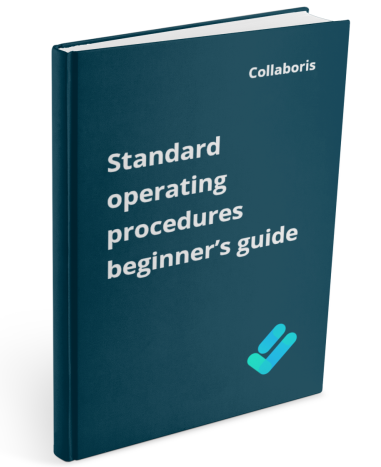Policy Approval Workflow Automated policy approval workflows offer several benefits that can significantly enhance ...
The Importance of Versioning with Policies
What is policy versioning?
Policy versioning is the practice of assigning a unique version number to each iteration of a policy or procedure. This helps to keep track of changes and updates made to the policy over time. It also helps ensure that policies are up-to-date and compliant with the latest changes in regulatory requirements. The version number is usually accompanied by a date or other identifier to indicate the effective date of the policy.
By using versioning, organizations can easily reference specific versions of their policies and procedures, which can be useful in audits or when addressing questions or disputes.
The importance of policy versioning
Versioning is important in policies and procedures for several reasons:
- Tracking Changes - Versioning allows organizations to keep track of changes made to policies and procedures over time. This makes it easier to see what has been updated and when.
- Compliance - Maintaining updated policies and procedures is crucial for compliance with legal and regulatory requirements. Versioning ensures that everyone is using the most up-to-date version of the policies and procedures.
- Consistency - By using versioning, organizations can maintain consistency in their policies and procedures. This helps to ensure that everyone is following the same procedures, which can lead to improved efficiency and effectiveness.
- Accountability - With versioning, organizations can easily see who made changes to policies and procedures and when. This can help to improve accountability and ensure that changes are made with proper oversight.
- Reference - Versioning allows organizations to reference specific versions of policies and procedures when needed. This can be useful in audits or when addressing questions or disputes.
How version control software can help
Version control software can greatly assist with policy management by providing the following benefits:
- Tracking Changes - Version control software allows organizations to keep track of changes made to policies and procedures over time. This makes it easier to see what has been updated and when.
- Collaboration - Version control software facilitates collaboration between multiple individuals or teams who may be working on updating policies and procedures. This can improve the efficiency of the process and ensure that everyone is working from the same information.
- Auditing - Version control software makes it easy to see the history of changes made to policies and procedures, allowing for easy auditing and tracking.
- Reverting Changes - If a change is made that needs to be reversed, version control software makes it easy to revert to a previous version of the policy.
- Accessibility - Version control software can be accessed from anywhere with an internet connection, making it easier for teams to collaborate on policy updates regardless of location.
- Conflict Resolution - In the event of conflicting changes made by different users, version control software can automatically resolve conflicts and ensure that the correct version of the policy is being used.
Overall, version control software provides a centralized and organized system for managing policies and procedures, which can help organizations improve their policies, stay compliant, and maintain consistent practices. Most version control software systems will also allow you to streamline the process of creating and updating policies by using workflows to ensure that all key stakeholders involved at key points of the policy lifecycle.
We have created a free eBook describing the lifecycle of Standard Operating Procedures (SOPs) which can also be applied to Policies and Procedures.
Get your free Standard Operating Procedures guide
Creating Standard Operating Procedures for your organisation doesn't have to be complicated. This guide will introduce you to the whole lifecycle from creation to training and distribution.
How to choose the right software solution for your business’s versioned policies?
Choosing the right software solution for your business's versioned policies can be a daunting task. It is important to find a cloud-based solution that is reliable and secure. Other important considerations are being user-friendly and cost-effective. The best software solutions for managing policy versions should have features such as automatic versioning, audit trails, and searchable databases. Additionally, these solutions should also be able to integrate with existing systems and offer scalability options for future growth. With the right software solution, businesses can ensure versioned policies are up-to-date and compliant with industry standards.
Managing your policy lifecycle in SharePoint
You may also like:
January 17, 2025
January 7, 2025
Creating policy review reminders in Office 365 You might want to set up a ...
December 19, 2024
Podcast: Implementing effective healthcare procedures Implementing effective healthcare procedures is an ongoing process. It ...
December 19, 2024
Podcast: 10 Powerful Strategies for Employee ComplianceOrganizations face challenges in ensuring employee compliance with ...
December 8, 2024
AI Warns About Itself: How I Asked AI to Create a Podcast on the ...
November 4, 2024
Benefits of writing SOP's In any organization, standard operating procedures (SOPs) are critical to ...


